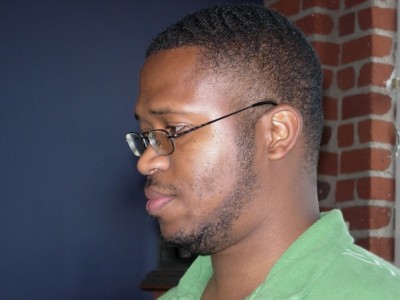NURTURING RECONCILIATION | BHM: My struggle to write as a black evangelical
 To kick off our blog series for Black History Month, and before we get too far in to it, Ramon Mayo starts us off with the tension of the great ‘both/and’. The ‘both/and’ he wrestles with here is the celebration of his uniqueness as a Black American man, yet while that is a significant part of him, his uniqueness should not be something that limits him but frees him. We think you’ll find this doesn’t just apply to himself, as you’ll see.
To kick off our blog series for Black History Month, and before we get too far in to it, Ramon Mayo starts us off with the tension of the great ‘both/and’. The ‘both/and’ he wrestles with here is the celebration of his uniqueness as a Black American man, yet while that is a significant part of him, his uniqueness should not be something that limits him but frees him. We think you’ll find this doesn’t just apply to himself, as you’ll see.
___________________________________________
About Ramon Mayo:
 As a young kid I grew up in South Central Los Angeles during the crack era of the late 80’s/early 90’s. I have been a hip hop artist, a pentecostal preacher, a missionary to Ethiopia, the pastor of a multiethnic Vineyard church, and now I am a writer/editor and speaker. All of these things give me a unique perspective on diversity, the church, and culture.
As a young kid I grew up in South Central Los Angeles during the crack era of the late 80’s/early 90’s. I have been a hip hop artist, a pentecostal preacher, a missionary to Ethiopia, the pastor of a multiethnic Vineyard church, and now I am a writer/editor and speaker. All of these things give me a unique perspective on diversity, the church, and culture.
Diversity: Everyone in the world is not like me
The Church: A bunch of people who are not like me worshipping the same God
Culture: the different ways people who are not like me act, behave, create beauty and find meaning
I write about all this from the perspective of being rooted in blackness, following Jesus and embracing the world.
Ramon lives with his wife Yvette and three wonderful children in Chicago, Illinois and attend the South Suburban Vineyard Church.
_____________________________________________________
I have been struggling to write. At least write for this blog. Part of it is due to my own exhaustion and needing to have a come to Jesus moment. That’s for another blog post. Another reason is because I have been working on some other projects like a chapter for an upcoming book. But part of my not wanting to write stems from my identity as a black evangelical. You see there are a lot of us out there but there are not a lot of us out there at least when it comes to publishing. Katelin over at By Their Strange Fruit highlighted this in a recent interview with Al Hsu.
Most of the time I get encouragement in the manner of we need your voice in the conversation. My voice basically means “my black voice” and that’s ok with me. I can’t escape who I am. At the same time I really struggle against getting pigeonholed. I don’t want to be the guy who always talks about diversity just by virtue of my presence making things a bit more…diverse. Does that make sense? It is a struggle because I know that I have much more to say on a whole range of theological and cultural issues and I don’t want to be stuck on the sidelines. The experiences I have had and my cultural identity help me to look at the issues different but sometimes I feel like my writing has the potential to be sequestered off. Sort of like the aisle in the grocery store labeled “ethnic food.” You only go there on that special occasion where you need some yellow rice or some tortillas. It’s only right when you have a hankering for rice noodles or spicy dal. It’s not for the everyday. It’s exotic.
And that’s what it feels like. Like I’m exotic. So I fight that all the time. Wanting to write but not wanting to write because I don’t want to get pigeonholed and caged in. It’s a tough road. In some ways I’m glad I get called for the diversity workshop or to weigh in on the topic of multi-ethnic churches. Much change is needed in those areas. At the same time it is sad when I get passed up for the spiritual disciplines talk or the how to pray seminar. The whole purpose of the diversity talks and the race conversation is for guys and girls like me to be and feel normal in spaces that are not set aside solely for racial reconciliation and multi-cultural church.
At the end of the day I have to write. Some of it will be on race or diversity issues. Some of it will be on mission and the sovereignty of God. Some of it will be on the theological implications of pop culture. It’s a struggle but as Frederick Douglas said “without Struggle, there is no progress.”
